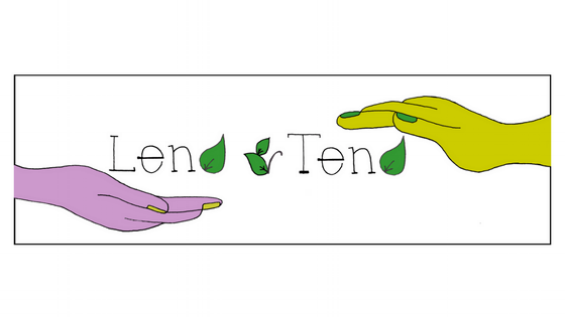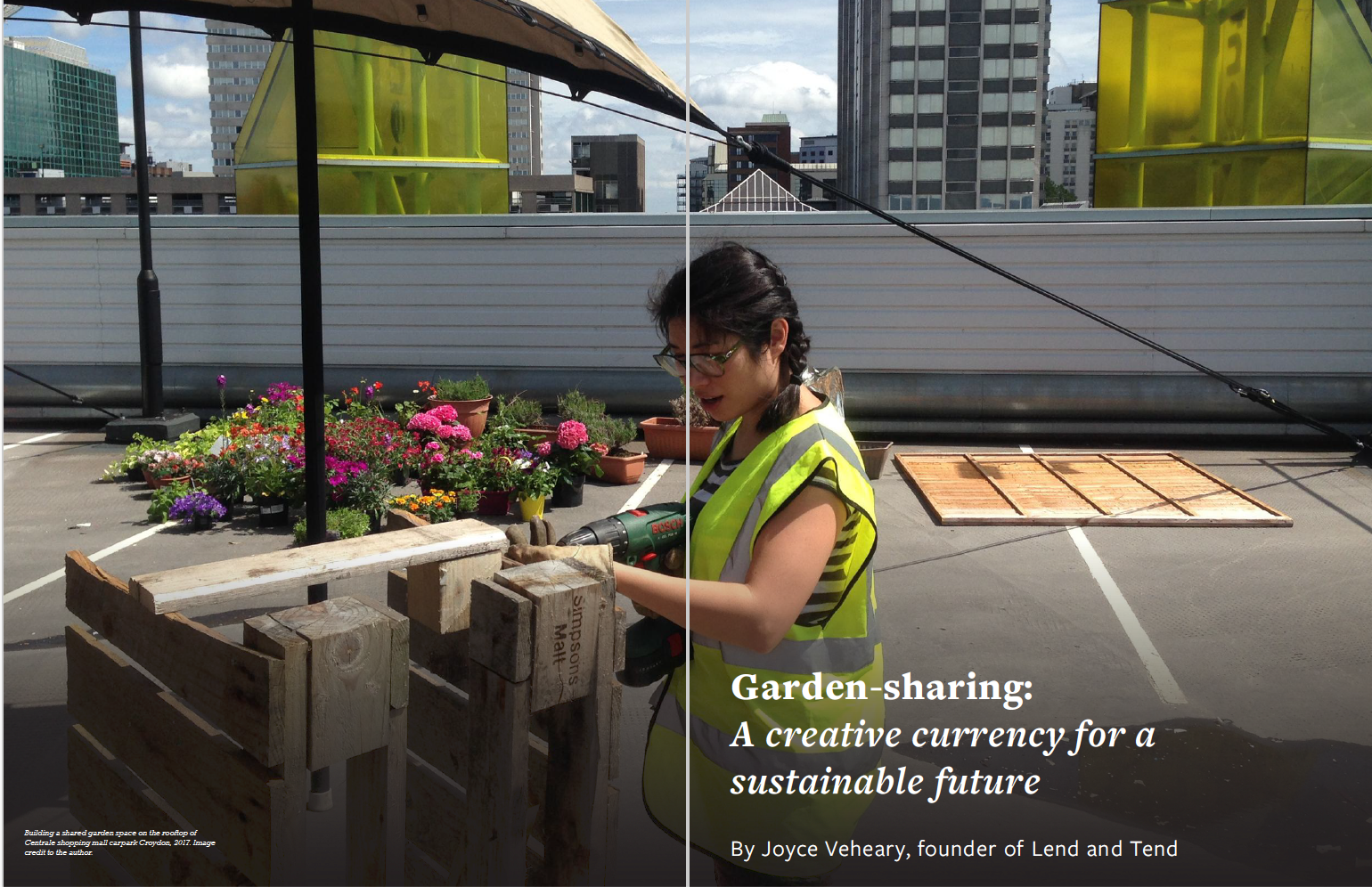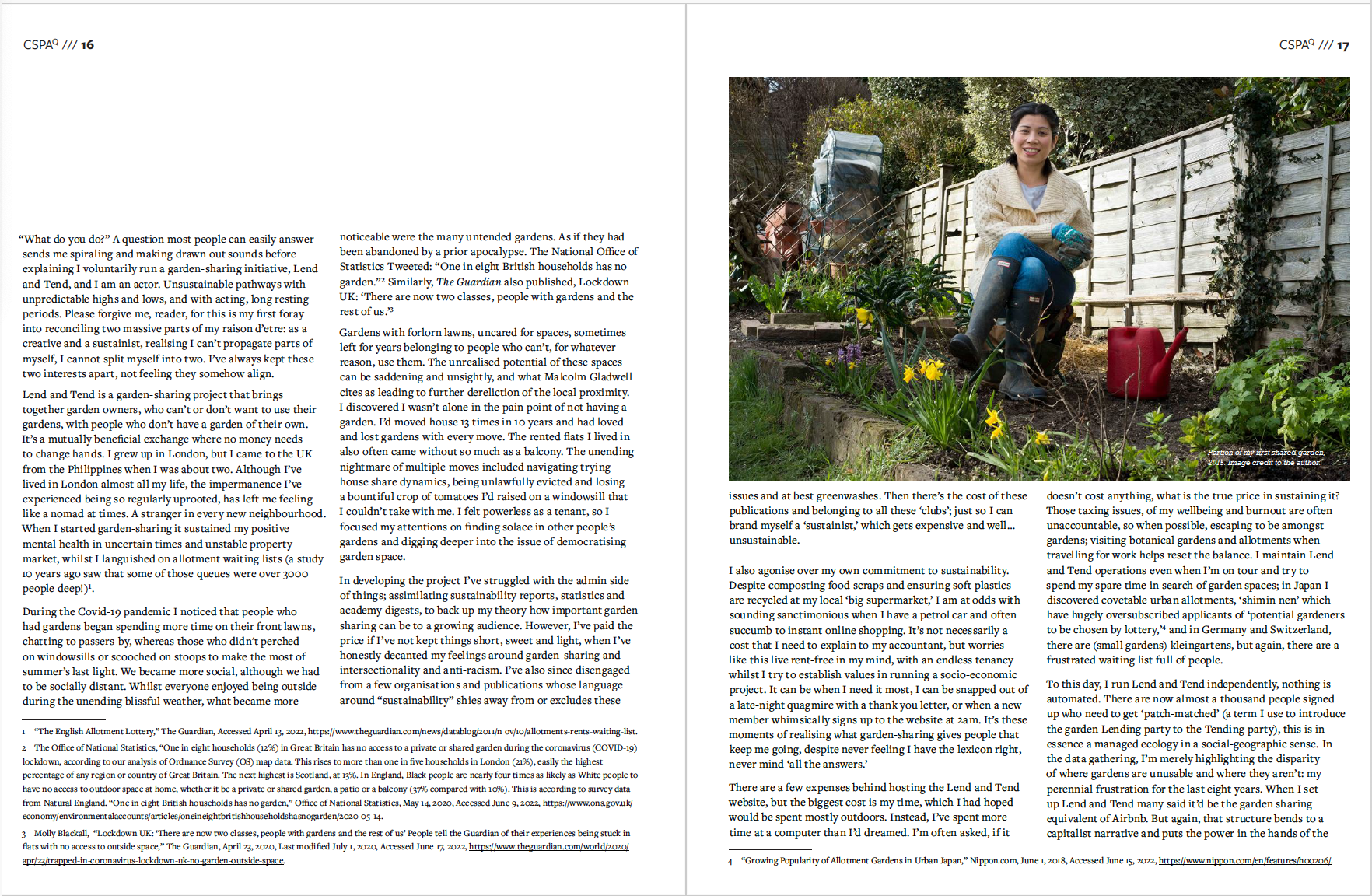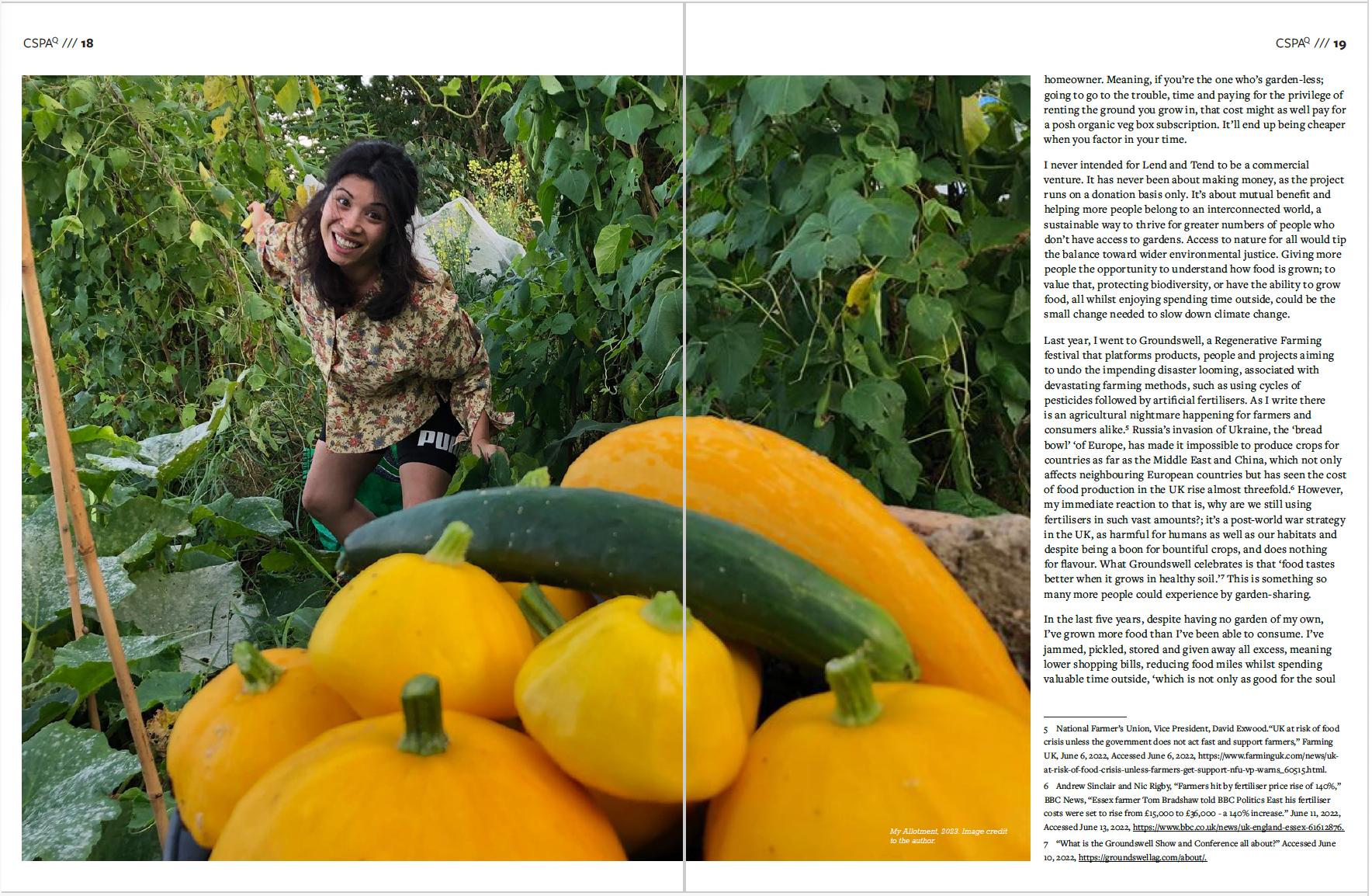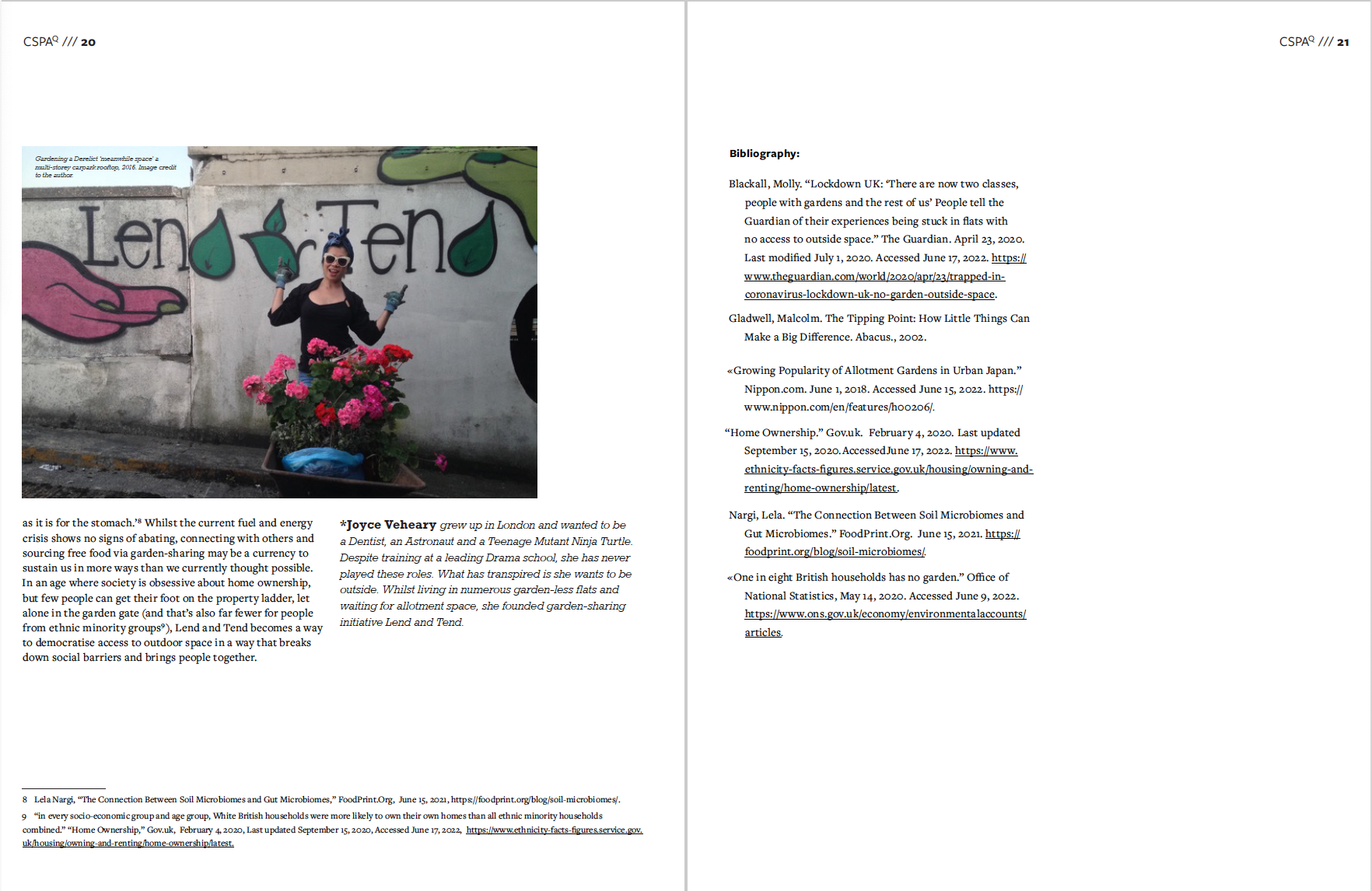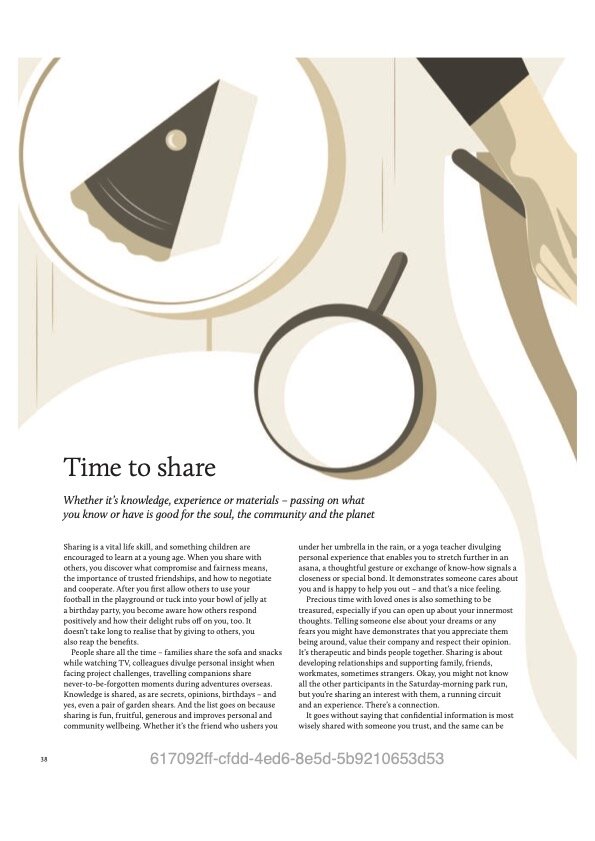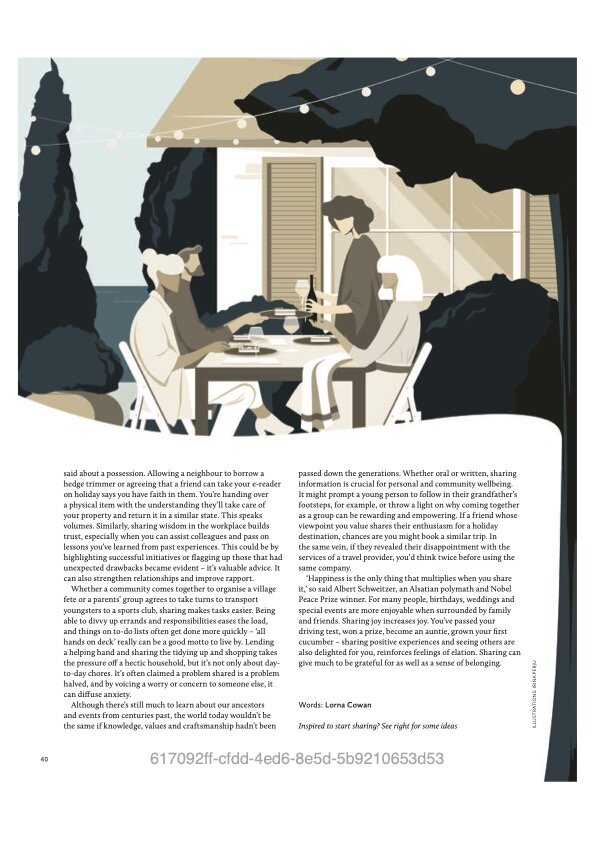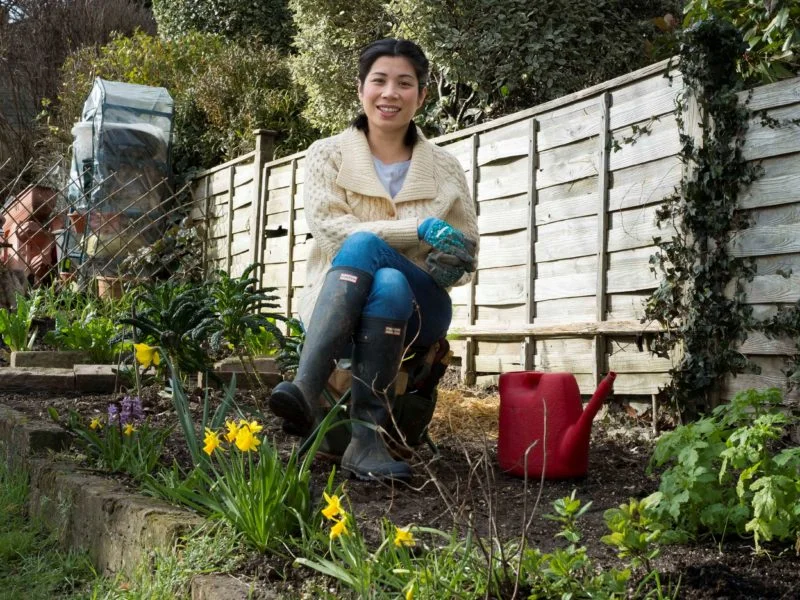Recent appearances in Press & Media
For all Press and Media enquiries email Joyce@LendandTend.com
Can you ‘Help our Future Gardeners? - Lend and Tend in Gardener’s World Magazine.
Next Gen Gardening, from Arit Anderson for Gardeners’ World.
I don't have many regrets, but I do wish I had found gardening earlier in my life. As part of a large family, there wasn't much time for gardening, and my early memories were of our neighbour having a perfect lawn and immaculate borders, unlike ours, which was rather trampled on by us children. But how different life could have been if I'd asked Mr Lucas next door just one or two questions about his gardening.
At RHS Chelsea 2023, schools were invited on Press Day to a picnic, attended by HRH The Princess of Wales, and they got to vote for who they thought had the best garden on Main Avenue. There just might have been a garden designer of the future having sandwiches with the Princess.
These days, in a world that encourages us to stay inside close to a modem. and with house prices rocketing, how are the younger generation going to learn gardening?
So many challenges to our wellbeing, community and the environment can all be solved in a garden. So now is the time for generations old and new to join forces, work together and make the future of gardening a bright one.
There are many ways that we can engage children from a young age in the garden.
Watching sunflowers grow from seeds is always fascinating (made even more fun if there is a competition attached for who can grow the tallest). And who hasn't watched mustard seeds germinate on wet tissue?
Once given permission, young children love being outside and getting mucky.
But, just like with students, once we reach our teens and early twenties it becomes evident that gardening has gap years. And gardening in earnest perhaps doesn't start again until we reach our fifties. This in part is due to people settling down and having children older than ever, so it's not until later that there is time to devote to the garden.
However, it seems that things are changing. During lockdown in 2020, many people, and especially families, refocused on their gardens and there was an upsurge in grow-your-own. The Horticultural Trades Association estimated that an extra three million people became gardeners
- and, better still, 49 per cent of these newly found green fingers were under 45.
This trend doesn't appear to be abating.
A 2021 poll* of 2,000 young people aged 18 to 34 revealed that "83 per cent of young
people describe gardening as 'cool' and 54 per cent would rather amble around a garden centre than dance the night away in a club". It also emerged that young adults were spending up to two hours a week tending their beloved plants.
Social prescribing - Mental wellbeing has certainly had more attention over the past few years, and young people are aware of how it affects their daily lives. The charity Thrive announced in 2023 that the NHS is trialling social prescribing
in activities such as dancing and gardening
for teenagers to find out whether these help to improve mental health.
Younger generations are also mindful of sustainability and the climate crisis we are facing, and gardening helps them to feel that they are contributing to some of the environmental solutions.
However, there are some big challenges for young adults in how they access gardening and horticulture. According to The Institute for Fiscal Studies, the rate of home ownership by 25 to 34-year-olds decreased by 55 per cent in the years between 1997 and 2017. And with average property prices in England rising by 173 per cent in the same period the likelihood of this generation owning a home and garden seems increasingly doubtful. And if you're renting your home it's not always option to be able to use the garden or afford to invest in it.
We spoke to Laura from the Young Growers Club in Luton, who is determined to teach children how to grow food and look after the planet. Laura believes that "the biggest challenge that young people face starting their gardening journey is the opportunity to actually try gardening".
"Living in a highly populated area, a lot of families don't have an outside space," she explains, "which means gardening isn't part of their home lives and, although there are a small number of primary schools that have gardening clubs, this usually stops by secondary school.
"The lack of gardening knowledge and experience of some parents means that gardening is seen as too daunting. I often hear: 'I can't even keep a house plant alive let alone grow food.' I think for a lot of parents gardening is just too scary, which stops children from being able to give it a go.
"One-off events and workshops are popular with young people and although they do provide a lovely introduction, gardening takes time, patience and consistent effort to make it truly part of their lives."
Skills shortage - The horticultural industry also faces a skills gap with many of our nurseries being owned by the older generation, who don't always have a family to pass them on to.
The wage bands for skilled professionals in horticulture are not always high enough to support individuals, let alone those with families. And I think it would be fair to say that a garden-related job is not promoted on the careers curriculum and is often perceived to be for older people.
But if those polls are telling us young people want to be green-fingered, how can the older generations help? When I attend talks, sometimes I ask the audience for a show of hands if they have early memories of gardening to share. We spend time listening to enchanting stories of seed sowing with a grandparent or being able to tend a small patch of the garden. I then ask them if they have children or grandchildren and to keep their hand up if they are teaching them and sharing their gardening passion. Quite a few hands go down. This is not to make anyone feel guilty, but it demonstrates how times have changed.
Don't we want our younger generation to have these evocative memories too? Sadly, mine are just of weeding, but now I realise how beneficial those early experiences in the garden can be.
Joyce Veheary is the founder of Lend and Tend, an organisation that matches people with a garden with others who don't have a space to grow. Joyce says, "With regards to intergenerational garden-sharing, an older person who may no longer be able to manage their garden can partner with someone who is eager for access to outdoor space but may not have any - like a young person in a flat or on a long allotment-waiting list. The outcomes aren't just about the gardening; it's also about building connections and offers mutual benefit."
Lend and Tend call these sharing opportunities a 'Patch Match'. "In South London an older gentleman, unable to maintain his garden, 'Patch Matched' with a young chef who transformed the space into a thriving vegetable patch for his culinary creations. Not only did the garden flourish, but a meaningful connection was formed," explains Joyce.
"In another example, a person with a disability shared their unused garden with an enthusiastic non-disabled person. The partnership brought immense joy to both of them, proving that garden sharing is as much about the people as it is about the plants and brings delight to garden owners to see their gardens loved by someone else, even if they can no longer garden themselves."
Pass it on - Sharing your garden is one way you can help but there are plenty of other ways, too.
You could offer your skills to schools and colleges to mentor younger people, and search for local community garden initiatives that could benefit from your skill and knowledge. Or maybe you can set up some intergenerational workshops through your local horticulture group. It could even be as simple as getting on your phone and doing a video call and talking your grandchildren through your garden and getting them to walk and talk through theirs.
Love it or hate it, social media has been a fantastic way for younger generations to share their passion for gardening. Many that become house plants experts, sharing tips and tricks on growing a green oasis indoors. Others have filled balconies and window boxes with an array of plants to delight the senses and help with mindfulness.
Appealing to a younger audience through tech is certainly not to be ignored: gardening apps to help with plant identification, solving pest and disease problems, smart mowers and irrigation systems, smart plant monitors, the list goes on. While this may not appeal to more traditional gardeners, if we are to hand gardens over to up-and-coming horticulturists of the future, we must be aware of these gadgets and gizmos and the fact that they are there to reach the same goal - to produce a great garden.
There are so many inspiring people who want to share their love of gardening.
Take Yasmine, for example, who lives in Manchester. She has turned her back alleyway from a dumping ground to an oasis of green, growing flowers and edibles for the community, proactively engaging people from the neighbourhood, and all while documenting her journey on social media.
Yasmine explains that when she started her alleyway project she knew "absolutely nothing about gardening and had no friends who gardened".
"When I was allocated a plot on a local allotment, it was such an easy way to connect with older, more experienced gardeners.
I used this community that was new to me as a resource, asking what successes they had and even their failures! I found learning about their different methods, such as no-dig, and hearing which crops worked well or were a complete failure in our urban Manchester location, was inspiring and encouraging. I am grateful to all who shared their experiences with me.
I continue to learn from these more seasoned gardeners, but l am also now confident to share my own experiences with budding gardeners."
There are so many stories like these.
Just imagine where we would be if the passion, energy and social reach of this new cohort was harnessed to the experience and wisdom of a mature gardener... we'd be moving ever closer to a beautiful, plant-filled world.
To read Evie Delaney’s full article, visit https://www.houseandgarden.co.uk/article/young-gardeners-gen-z-cool-gardening
Vogue Philippines celebrates International Women’s Day through “Raising Hope,” in a call for nominations of inspiring women. The following women are champions of environmentalism, advocating for innovative solutions to preserve our planet while inspiring others to do their own part for a more sustainable world.
In initiatives involving environmental conservation, women play a crucial role. Aside from bringing unique perspectives and insights to environmental issues, these women have been instrumental in leading environmental movements and advocating for policy changes at local, national, and global levels.
Find out how a Patch-Match works for one pair of garden-sharers in Bristol.
Joyce is interviewed by Arit Anderson from Gardeners’ World on the BBC One Show.
Read Kate Brazier’s article on finding an alternative to an allotment where we’re pleased to see Lend and Tend is mentioned https://englandnaturally.com/find-an-allotment-plot-complete-with-shed/
Read a deep delve into sharing gardens in the CSPA (The Centre for Sustainable Practice in the Arts).
“The CSPA views sustainability as the intersection of environmental balance, social equity, economic, stability, and strengthened cultural infrastructure.” So I was only too happy to talk about democratising access to outdoor space.
For all of her work in garden media, Founder Joyce Veheary became a member of the Garden Media Guild in 2021, read more about how Lend and Tend started in the latest Autumn edition of Garden Media News.
Joyce talked to JP about How Great Plants Are on Brian Blessed’s Big Beard Productions Podcast. Listen to the podcast here https://www.bbbstories.com/pagetv
The Belonging Volume takes a planetary perspective to reflect on the significance of our existence and that of the intricate network of ecosystems we inhabit. It explores how intimate knowledge of nature can enable us to feel at home outdoors, and how finding wonder in our everyday lives can profoundly impact our worldview. It listens to the voices of the younger generation and ruminates on the concept of intergenerational equity, and it hears stories of collective action to tackle some of today’s most pressing issues. It inspires us to humbly step back from our anthropogenic view on the world so we may find belonging in nature and come home to ourselves. Lend and Tend features in Good Work.
In each Another Escape volume, we highlight an organisation creating positive change, and in this volume ‘Belonging’, we speak with Lend and Tend founder Joyce Veheary about the garden-sharing initiative that connects lenders and tenders all over the world.
‘Tinder’ of gardening vs allotment waiting lists by Helen Taylor pg 7in SW Londoner
Struggling with a pocket wilderness outside the backdoor? in The Croydon Citizen
